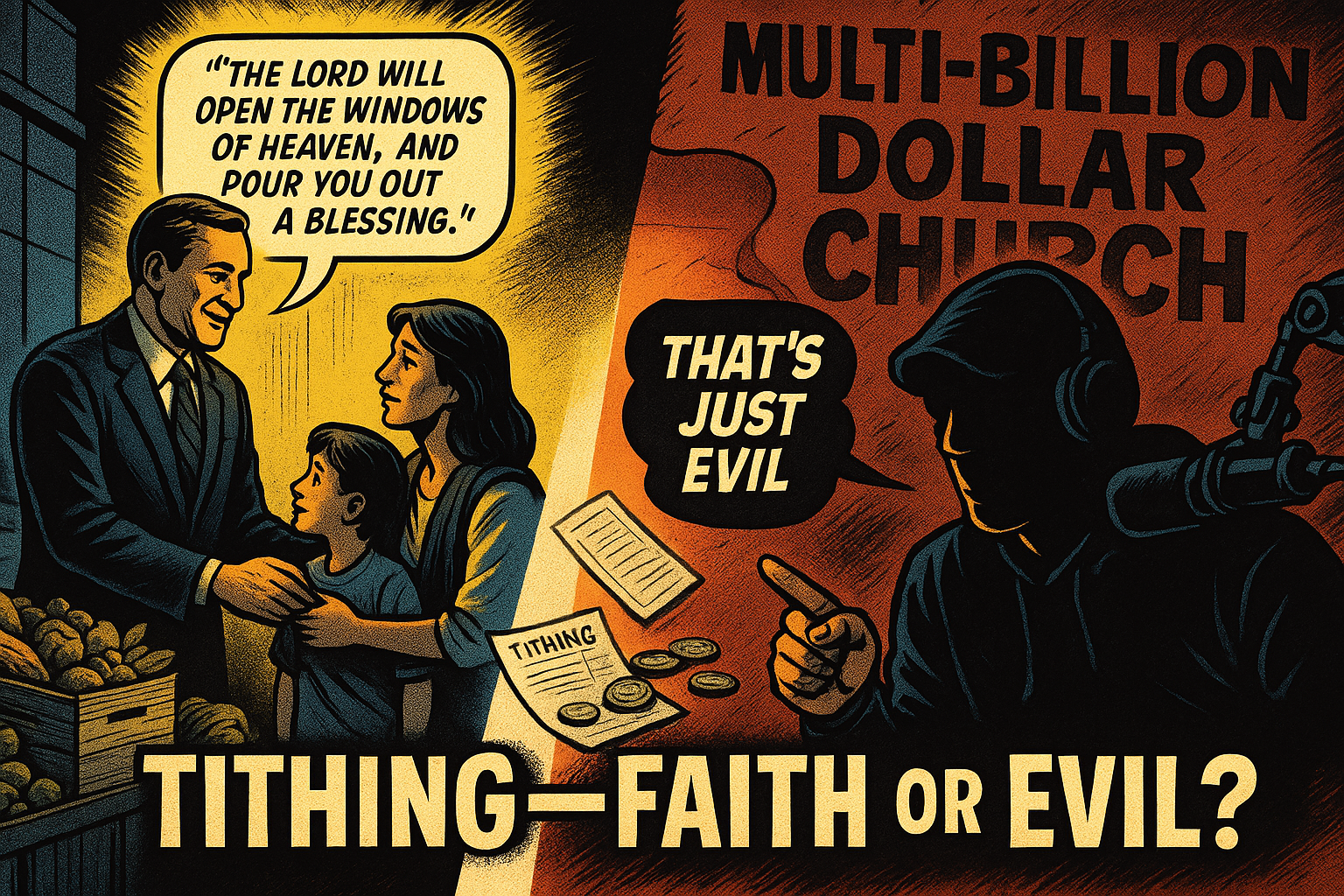Bottom Line
Calling tithing “evil” isn’t brave. It’s lazy. The Church doesn’t let the poor starve. It feeds them — with food and with faith. Doctrine without context isn’t truth. It’s a talking point.
| Podcast | YouTube – Anonymous Creator |
|---|---|
| Episode | “How the Mormon Church Secretly Built a $293 Billion Fortune” |
| Category | Tithing Ethics & Accusations of Harm |
| Quote | “You’re giving this multi-billion dollar church your 10%. Food or tithing — pay tithing. How can you say that with a straight face? That’s just evil.” — Narrator, 00:56:05 |
| Core Claim | The Church’s tithing doctrine causes harm to the poor and is morally evil. |
| Conclusion | Emotional Assertion / Intentionally Misframed Doctrine |
🔍 Core Findings
The narrator calls the Church’s tithing doctrine “evil” — but leaves out the spiritual framework, the voluntary nature of tithing, and the welfare resources available to every member. It’s not coercion — it’s consecration. And the Church teaches both sacrifice and support.
📖 What the Church Actually Teaches
- Tithing is voluntary and confidential.
- Bishops are trained to help anyone in need, regardless of donation history.
- Members are not denied food, rent, or employment support because they don’t tithe.
📖 Scriptural Principle
“The Lord will open the windows of heaven… and pour you out a blessing.”
— Malachi 3:10
To believers, tithing is a spiritual act of trust — not a contract. You may disagree with that faith, but calling it “evil” ignores what it actually means to the people who live it.
📚 Sources
- Church Handbook: Welfare Principles
- Elder Lynn G. Robbins, GC Apr. 2005
- Malachi 3:10; Mosiah 2:17; 1 Kings 17; Mark 12
- Mormoner.org – Tithing and Assistance

